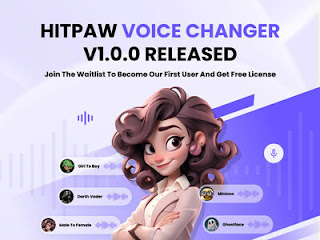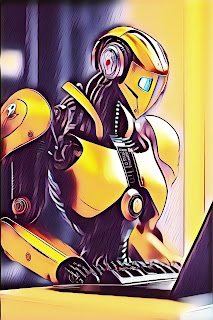The escalating popularity of AI technology, especially generative AI tools like ChatGPT, has stirred a looming fear across various industries, particularly in the job market. Many experts and industry leaders, including Stability AI's CEO Emad Mostaque, have expressed concerns about the potential impact of AI on employment. The rapid growth and adoption of AI-powered solutions have raised questions about job security, especially among coders and IT professionals.
 |
| Emad Mostaque and Tech Leaders Addressing AI's Impact on Job Market |
As AI technologies continue to advance and become more sophisticated, there is a growing apprehension that certain job roles may become redundant or automated. Emad Mostaque recently highlighted the vulnerability of coders, particularly those in countries like India where IT jobs are often outsourced. His predictions suggest that within the next two years, outsourced coders, including up to level three programmers, could face job displacement due to the emergence of highly capable generative AI models.
The implications of AI's disruptive potential are not limited to a single sector or geographic location. As the AI landscape evolves, businesses and organizations worldwide are grappling with how best to adapt to this transformative technology. While AI promises increased efficiency and streamlined operations, its widespread integration also raises questions about job displacement and workforce retraining.
To navigate the potential risks associated with AI adoption, industry leaders and policymakers must strike a delicate balance between leveraging AI's capabilities and mitigating its impact on the workforce. Emphasizing the need for reskilling and upskilling programs, companies can prepare their employees to work alongside AI technologies and embrace the collaborative potential of human-AI partnerships.
From a broader perspective, the fear surrounding potential job losses due to AI calls for comprehensive workforce planning and a proactive approach to embracing digital transformation. Amidst this uncertainty, it is crucial for organizations to adopt a people-centric approach, prioritizing employees' well-being and offering continuous learning opportunities to equip them with the skills needed to thrive in the AI-driven era.
As we navigate the ever-changing landscape of AI, it is vital to recognize that technology is a tool to enhance human capabilities rather than replace them. By embracing AI in a responsible and ethical manner, businesses can unlock its full potential while ensuring a sustainable and inclusive future for the workforce. Ultimately, the successful integration of AI requires a collective effort from all stakeholders, fostering a collaborative ecosystem that embraces innovation, reskilling, and job creation in the emerging AI-powered world.
The rise of AI technology, particularly generative AI tools like ChatGPT, has instilled a sense of fear about potential job losses. Emad Mostaque, the CEO of Stability AI, recently expressed concerns about the risks faced by coders, particularly those in India, where many IT jobs are outsourced. Stability AI is renowned for its text-to-image generator tool, Stable Diffusion, making Mostaque's insights even more significant.
In an interview, Mostaque highlighted that countries like India may encounter challenges in the next few years as multinational corporations increasingly adopt AI tools to handle coding tasks. The weak labor laws in India further exacerbate the situation, making it crucial for the IT sector to brace for changes.
Mostaque's remarks also shed light on the offline capability of AI tools like ChatGPT. Predicting that such tools will become accessible on mobile phones without internet connectivity by next year, he envisions users being able to generate text and images instantaneously, revolutionizing information accessibility.
The concerns raised by Mostaque are not isolated. CEOs like Sam Altman of OpenAI, along with tech giants Google and Microsoft, have shared similar worries about job security and user privacy. However, they believe that AI will also create new job opportunities, emphasizing the importance of humans co-existing harmoniously with technology.
Here are five key takeaways from Mostaque's recent statements, particularly concerning India's IT market:
. Mostaque predicts that outsourced coders, including up to level three programmers, may face job displacement within the next year or two. The emergence of new generative AI models poses a risk to coders who might be overlooked for their work in favor of AI-powered solutions.
. Different countries, depending on their labor laws and regulations, will experience varied impacts from AI adoption. Countries like France, with stronger labor laws, may find it challenging to terminate workers, while India's weak labor laws put coders and engineers at risk in international IT firms.
. India's significant influx of engineers each year contributes to the ongoing debate about job scarcity in the IT sector. Reports have indicated that around five million engineers face a potential "Jobpocalypse," raising concerns about job opportunities in the field.
. Tech leaders like Google's Sundar Pichai and Microsoft's Satya Nadella have expressed similar concerns about job loss due to AI. Nonetheless, they encourage users to embrace AI technologies proactively to stay ahead of the evolving landscape.
. Emad Mostaque highlights the transformative potential of AI, acknowledging the possibility of societal disruptions. However, he also emphasizes the exciting opportunities that AI presents, particularly in personalized education and healthcare.
As AI continues to evolve and permeate various industries, finding a balance between leveraging its advantages and addressing its implications will be pivotal for ensuring a sustainable and inclusive future.






.jpeg)

